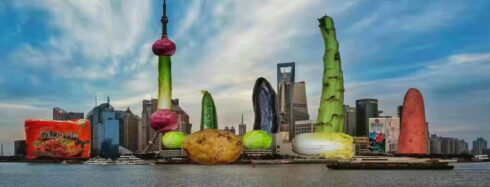May 5-6, 2022, Vienna – In the workshop Humor, Coping and Resistance: Exploring Artful Practices and their Mediations organised by Noura Kamal & Martin Slama, I presented together with Lena Scheen a paper on both the humerous but also angry and tragic responses to the lockdown in Shanghai in the Spring of 2022.
Abstract: The lockdown in Shanghai (March – May 2022) sparked a flood of online memes, jokes, songs, art works, and critical political clips, that even paled the creative production unfolding after the initial outbreak of COVID-19 in Wuhan. In our paper, we will probe into the narratives that unfolded during the lockdown, and the facilitating role of WeChat in particular. We have collected around 200 humorous images, memes, and short videos that circulated during the lockdown. Our collection of online data is supplemented by participatory observation fieldwork by one of the authors based in Shanghai. We will show that, first, the narrative that unfolded since the end of March is characterised by different phases, moving from laughter to anger and critique to, finally, ambivalent acceptance. We connect the phases that we distinguish with five humour repertoires that we find most striking, first, vegetables jokes in response to food shortage, second, people dressing up for the first city-wide testing day, third, but here the word humour is less apt, a sudden outpouring of angry and critical clips, with Voices of April as its epitome, fourth, in the wake of this short video, memes created by Tongji students in response to an incident during a university town hall meeting and fifth, and finally, the numerous nostalgic and melancholic videos taken through the city’s empty streets. We conclude by arguing that rather than reading humorous memes and videos in terms of resistance against the social and political system in general and the lockdown restrictions in particular, we may do better to read it as a form of coping, processing, and resilience. Together they underpin a process of memory-making. This move from resistance to resilience to memory-making places stronger value to the social function of humour, to how it helps people survive in dire times, and memorise these times, rather than that it projects a certain desired outcome on humour, such as political change.
See also this video to get an impression…
